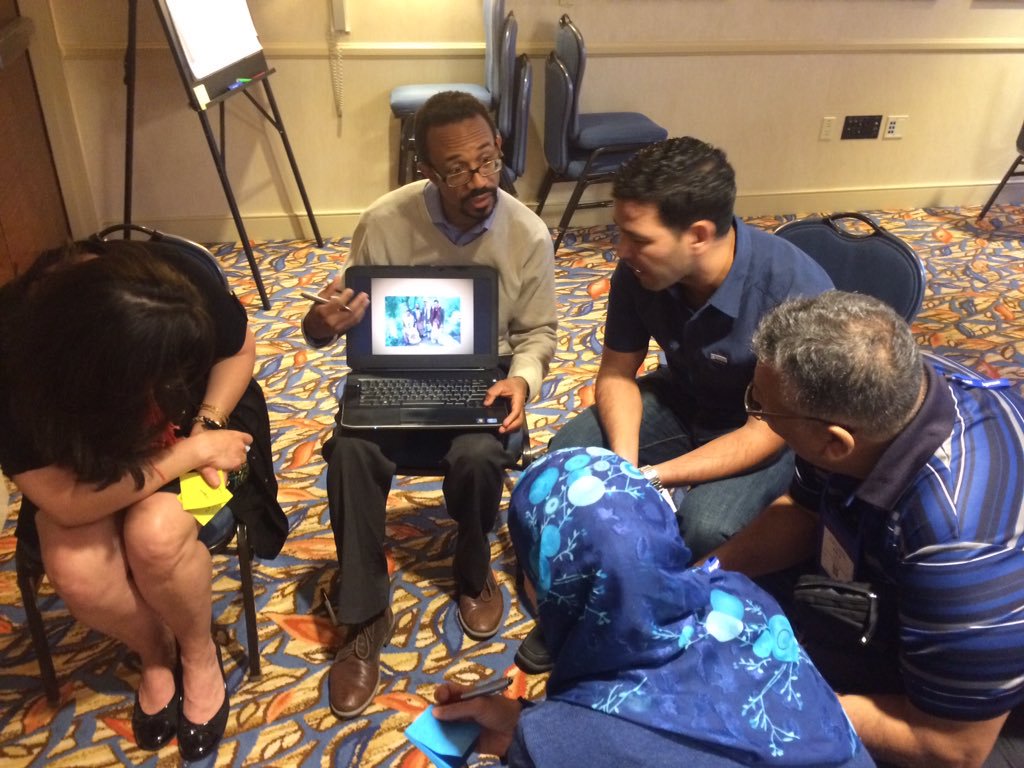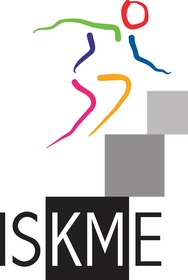OER Academy: Open Educational Practice for Curriculum Improvement
Welcome
ISKME's OER Commons Team has designed these OER Academy modules to support and advance your open educational practice. Our comprehensive OER toolset and immersive professional learning program will assist educators in enhancing their capacities to use, evaluate, curate, and create OER.
This module provides participants with an exploration of open educational practice for curriculum improvement. We have designed these modules to first spark the learner's interest in the topics covered and then dig deeper into the content through presentations, storytelling, and demonstrations of the tools. We will offer opportunities for learners to practice exploring the resources and tools, and reflect on how they might use them in their work.
OER Academy Outline:
Introduction to OER (3 modules)
- Module 1 - Overview of the what, why, and how of OER; including an exploration in open licensing and a showcase of OER use cases from around the world
- Module 2 - Content Discovery: identify teaching and learning goals, search and browse collections
- Module 3 - Curation and Collaboration of OER with groups, shared folders and discussions
Quality Evaluation (2 modules)
- Module 1 - Quality: participants reflect and share their quality criteria for teaching and learning materials they use
- Module 2 - Tools for Evaluating: explore digital tools for assessing OER (Achieve Rubric, Rating, Comments)
Authoring and Remixing (3 modules)
- Module 1 - Authoring Toolset: demonstration of Open Author and Module Builders
- Module 2 - OER Design: discover instructional design supports, including templates
- Module 3 - OER Remix: overview of the what, why, and how of remixing OER
Open Education Practice for Curriculum Improvement (1 module)
- Deep dive into the feedback, refinement, reflection, and revision process
Leadership and Advocacy (1 module)
- Exploration and planning of ways to lead and advocate for OER
Pre-activities:
To participate in group discussions during the REFLECT sections you will need to create a login and join the Group. Please see instructions below
CREATE A PROFILE on OER Commons to be able to contribute to the discussions in our group, and to save, organize, remix, and author resources. Share some information about yourself and upload a photo or image here: https://www.oercommons.org/profile/edit
JOIN OUR GROUP Once you've logged in successfully, join the Introduction to OER Group by clicking "Join This Group"
Open Educational Practice
When we first introduced OER in the beginning of this Academy, we shared how OER is both a noun (the resources) and a verb (the shift in teaching practice). Throughout this course you have had an opportunity to engage in the collaborative open educational practice of thinking deeply about your current OER needs; identifying OER to use in your teaching; curating OER; evaluating OER for quality; designing, authoring, and remixing OER; and now we will explore how peer feedback and reflection support OER improvement.

open educational practice
A Rubric for Guiding Open Educational Practice
We developed a rubric that defines a set of open educational practices that help educators to advance a classroom and school culture of open education and to advocate for the potential benefits of open educational resources (OER) in the context of continuous improvement. The rubric is intended to guide educator practice in working with OER to ensure that every student has the opportunity to engage in learning effectively. The rubric supports educators in accessing, curating, evaluating, and adapting OER in response to students’ particular needs, interests, and contexts, to author and share original or remixed resources, and to disseminate approaches to the implementation of those resources for future OER users to benefit from.
To learn more about our open educational practice rubric WATCH the webinar below
REFLECT: Share an example of how peer feedback and/or reflecting on student learning has helped inform your teaching? Did the feedback you received from your colleagues cause you to make any changes? Did reflecting on your student's learning experience result in you making any modifications to your curriculum or courseware? Reply here
*Reminder: you will need to be logged in and join the Group to reply to the discussion.
Peer Feedback
When we share our expertise by giving feedback, we help improve our community's OER and as a result improve teaching and learning for educators and students. Before we take some time to explore each other's OER and provide feedback, we wanted to share a few best practices and recommendations for successful feedback.
When providing feedback we encourage everyone to be specific, kind, and helpful. As we have discussed in previous modules, creating and sharing OER with a larger community can be intimidating. We all have the same goal of improving teaching and learning for educators and students, and sharing our feedback in a kind and helpful way, while providing specific ideas to consider to improve someone's OER will help us achieve that goal. A few prompts to help guide your feedback are below.
–Something I like about this OER is….
–Something that can be improved about this OER is…
–Something I didn’t understand is…
–One new idea to consider in the design of this OER is…
–One way this OER supports innovation is...
–One way this OER advances open educational practice is…
REFLECT: What additional prompts do you recommend people consider when providing feedback? Reply Here
PRACTICE Visit the Published OER folder from our previous module on Authoring and Remixing and explore a few of the resources in the folder. Select two to provide feedback on in the comments section on the resource. Here is an example of a published OER with peer feedback in the comments, Responsibilities of a Company to the Environment
Reflecting on Student Learning
In addition to peer feedback, reflecting on how the learning experience went for students can help support curriculum improvement. While implementing your OER it is important to pay attention to both quantitative student assessment results and data, and qualitative observations, such as:
- Student engagement. Students are:
- Paying attention
- Taking notes
- Actively listening
- Asking questions
- Responding to questions
- Actively participating and following directions
- Analyzing and reaching conclusions
- Connecting concepts and ideas
- Student communication. Students are:
- Explaining the learning experience to other students
- Performing and presenting
- Constructing viable arguments and critiquing the reasoning of others
- Student collaboration. Students are:
- Interacting with other students
- Working with other students on activities, projects, or assignments
PRACTICE: Revisit the OER you published during our previous module on Authoring and Remixing. Hopefully you have received some helpful feedback in the comments section on your OER. After reading through the feedback you received, make edits and refinements to your OER by clicking edit, make your changes, and then republish your OER. An important reminder is that you can always go back and make edits to your OER. Just be sure to republish.
Once you have implemented your OER and collected information on your student's learning experience, add your reflection on student learning to the resource by clicking edit and writing your reflection and then republish your OER. Here is an example of an OER that included a reflection by the authors on student learning at the end, Fractal in Geometry: Fractal Cities, Now & Then
